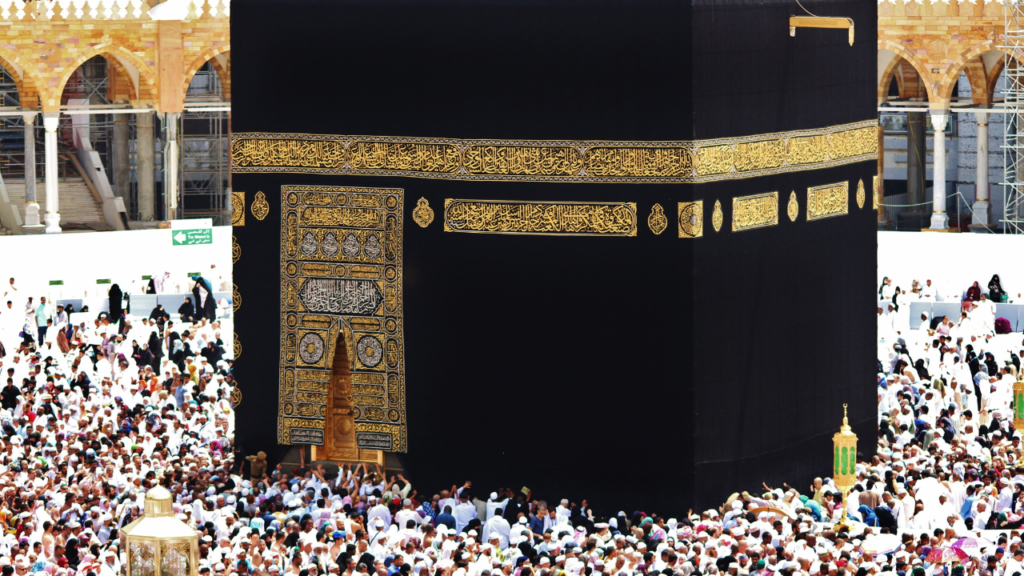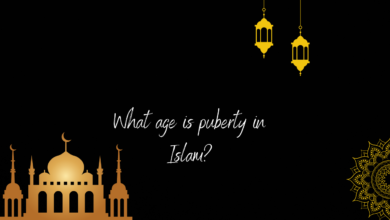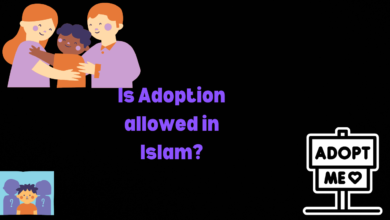
Islamic quotes
Islamic quotes are short, meaningful statements or verses from the Quran (the holy book of Islam) or sayings of Prophet Muhammad (peace be upon him) that convey religious, moral, or ethical guidance. They are often used for inspiration, reflection, and guidance in various aspects of life.

Introduction
Islamic quotes, derived from the teachings of the Quran and the sayings of the Prophet Muhammad (peace be upon him), offer profound wisdom and guidance for living a purposeful and meaningful life. These quotes encapsulate timeless principles that inspire, console, and guide millions of Muslims and non-Muslims alike. In this article, we will explore the significance and impact of Islamic quotes, highlighting some of the most cherished ones.
“Verily, with hardship comes ease.” (Quran 94:6)
This verse from the Quran reminds us that life’s difficulties are often followed by relief and ease. It offers solace during challenging times, encouraging perseverance and trust in God’s plan. It teaches us that trials are temporary and that better days lie ahead.
“The best of you are those who are best to their families.” (Hadith)
This hadith emphasizes the importance of family in Islam. It encourages individuals to prioritize kindness, love, and support within the family unit. It serves as a reminder that strong families are the foundation of a harmonious society.
“Whoever does not thank the people, does not thank Allah.” (Hadith)
Gratitude is a central theme in Islam. This hadith underscores the importance of appreciating the efforts of others and acknowledging their contributions. It encourages a culture of gratitude and kindness in our interactions with fellow human beings.
“Speak good or remain silent.” (Hadith)
This wise saying reminds us to be mindful of our words. It encourages constructive communication and discourages harmful speech. It highlights the power of silence as a means of avoiding conflict and preserving peace.

Also Check
- Islam map
- Is Islam Arabic?
- Islam moon and star
- Islamic picture
- What conditions were laid between the Muslims and the infidels on the occasion of peace at Hudaybiyah?
“Allah does not burden a soul beyond that it can bear.” (Quran 2:286)
This Quranic verse reassures believers that they will not face challenges beyond their capacity to handle. It offers hope and resilience during times of adversity, reminding us to trust in God’s wisdom and mercy.
“The strong person is not the one who can wrestle someone else down. The strong person is the one who can control himself when he is angry.” (Hadith)
This hadith emphasizes the importance of self-control and emotional intelligence. It teaches us that true strength lies in our ability to manage our emotions and reactions, especially in moments of anger or frustration.
“Actions are but by intention, and every man shall have only that which he intended.” (Hadith)
This hadith underscores the significance of intentions in Islam. It encourages individuals to have sincere and righteous intentions in all their actions, as it is the intention that ultimately determines the value and reward of one’s deeds.
“The ink of the scholar is more sacred than the blood of the martyr.” (Hadith)
This saying highlights the importance of knowledge and scholarship in Islam. It emphasizes that the pursuit of knowledge and the spread of wisdom hold a special place in the faith, even above acts of physical sacrifice.
Conclusion
Islamic quotes, drawn from the Quran and the Hadith, serve as a source of inspiration and guidance for individuals seeking a meaningful and fulfilling life. These quotes promote values such as gratitude, kindness, patience, self-control, and sincerity, which are universally relevant and applicable. Regardless of one’s faith background, the wisdom encapsulated in these quotes can offer valuable insights for navigating the challenges and joys of life, fostering a more compassionate and harmonious world.

(FAQs) About Islamic Quotes
What are Islamic quotes?
Islamic quotes are short, meaningful statements or verses from the Quran (the holy book of Islam) or sayings of Prophet Muhammad (peace be upon him) that convey religious, moral, or ethical guidance. They are often used for inspiration, reflection, and guidance in various aspects of life.
Can anyone use Islamic quotes, or are they only for Muslims?
Islamic quotes are not exclusive to Muslims. They contain universal wisdom and can be appreciated and used by people of all faiths or no faith at all. They often focus on values like kindness, justice, and compassion, which are relevant to people from diverse backgrounds.
How do I know if an Islamic quote is authentic?
Authenticity is crucial when using Islamic quotes. Ensure that the quote is sourced from reliable Islamic texts, such as the Quran or Hadith (sayings and actions of Prophet Muhammad). Consult Islamic scholars or reputable sources to verify the authenticity of a quote.
Are there different types of Islamic quotes?
Yes, Islamic quotes can cover a wide range of topics, including faith, character, morality, prayer, patience, and more. They can also be categorized as Quranic verses, Hadith, or quotes from Islamic scholars and philosophers.
Can I share Islamic quotes on social media or in public spaces?
Yes, sharing Islamic quotes, especially those promoting positive values and principles, is encouraged. However, it’s essential to do so respectfully and accurately, ensuring that the context is not misinterpreted or misused.
Do Islamic quotes have a specific purpose or benefit?
Islamic quotes serve various purposes, such as providing spiritual guidance, fostering self-improvement, and reminding individuals of their faith. They can also serve as a source of comfort during challenging times and a means to inspire acts of kindness and justice.
Are there any restrictions on using Islamic quotes?
While there are no strict restrictions on using Islamic quotes, it’s important to use them in a respectful and appropriate manner. Avoid using them for commercial purposes or in ways that might trivialize their significance.
Can I use Islamic quotes in my artwork or creative projects?
Yes, Islamic quotes can be used in artistic and creative endeavors as long as they are handled respectfully and maintain their original context and meaning.
Are there any specific etiquette or guidelines for using Islamic quotes in speeches or presentations?
When using Islamic quotes in speeches or presentations, it’s advisable to provide proper attribution, explain the context if necessary, and ensure that the quote aligns with the theme or topic being discussed. Respect the sensitivity of the audience and their diverse beliefs.
Where can I find authentic Islamic quotes?
You can find authentic Islamic quotes in books on Islamic literature, websites managed by reputable Islamic organizations, and by consulting knowledgeable scholars or religious leaders. It’s essential to verify the authenticity of the source before using any quote.


![Title: Finding Solace and Tranquility in Surah Fajr In a world engulfed by constant chaos, stress, and anxieties, seeking solace and tranquility has become a universal pursuit for many individuals. For the believers of Islam, finding peace amidst life's challenges is often sought through recitation and reflection on the Quran, the holy book that serves as a divine guidance for Muslims. One particular chapter that holds significant potential for comfort and serenity is Surah Fajr. Surah Fajr, the 89th chapter of the Quran, is a profound and emotionally charged Surah that contains essential lessons and reminders for believers. The Surah is a powerful representation of the fleeting nature of life and the consequences of human actions. It comprises thirty verses that were revealed in Makkah, during a time of great turmoil and adversity for the early Muslims. The Surah begins by bearing witness to the dawn, a time symbolizing hope, renewal, and new beginnings. In this context, the Surah describes the people of Thamud and their unjust treatment of their Prophet, Saleh, who was sent to guide them away from their sinful ways. The destruction that befell them serves as a stark reminder of the consequences of turning away from divine guidance and persisting in wrongdoing. One of the most powerful and emotionally charged verses of Surah Fajr is the fifth verse: "And as for man, when his Lord tries him and [thus] is generous to him and favors him, he says, 'My Lord has honored me.'" This verse highlights the nature of human beings, who tend to become arrogant and ungrateful during times of prosperity, forgetting the source of their blessings. The following verse presents a contrasting scenario: "But when He tries him and restricts his provision, he says, 'My Lord has humiliated me.'" Here, the Surah emphasizes the tendency to despair during times of hardship, often failing to recognize the wisdom behind trials. However, Surah Fajr does not merely focus on the gloomy aspects of life. It provides a profound sense of hope and consolation, reminding believers that life is a test and a means for spiritual growth. As verse 28 states: "Return to your Lord, well-pleased and pleasing [to Him]." This verse encourages believers to remain content and grateful during both times of ease and hardship, trusting in Allah's wisdom and submitting to His will. The Surah concludes with a powerful reminder of accountability, as every soul shall be held accountable for its deeds. Verse 30 states: "But as for he who is given his record in his left hand, he will say, 'Oh, I wish I had not been given my record.'" This verse serves as a warning to those who indulge in wrongdoing and choose to ignore divine guidance, urging them to reflect and rectify their ways before it is too late. Reciting Surah Fajr and pondering its meaning can have a profound impact on an individual's psyche. It offers solace and tranquility by instilling a sense of purpose and perspective, helping believers navigate life's challenges with a renewed sense of faith and determination. Here are some ways believers can find solace and tranquility in Surah Fajr: 1. **Reflection and Contemplation:** Take time to read and ponder the verses of Surah Fajr. Allow its messages to penetrate your heart, and contemplate on the transient nature of life and the importance of gratitude and humility. 2. **Prayer and Connection:** Incorporate the recitation of Surah Fajr in your daily prayers. Establishing a strong connection with Allah through prayer and remembrance can bring inner peace and a sense of tranquility. 3. **Learning from the Past:** Draw lessons from the stories mentioned in the Surah, such as the people of Thamud, and use them as a guide to avoid repeating their mistakes. 4. **Gratitude and Contentment:** Develop an attitude of gratitude and contentment, whether in times of ease or adversity, knowing that every situation serves a purpose in your spiritual journey. 5. **Repentance and Forgiveness:** If you find yourself straying from the path of righteousness, seek forgiveness from Allah and resolve to rectify your ways. Surah Fajr teaches the importance of seeking Allah's mercy and guidance. 6. **Community and Support:** Engage with your community and find support in the company of like-minded individuals who share your faith and values. Together, you can encourage each other to stay steadfast on the path of righteousness. In conclusion, Surah Fajr is a profound chapter in the Quran that offers solace and tranquility to those who reflect on its teachings. It reminds believers of the impermanence of worldly life and the significance of living with gratitude and humility. By turning to the Quran and contemplating its verses, Muslims can find peace and guidance amidst the trials and tribulations of life, ultimately fostering a stronger connection with their Creator.](https://surahfajr.com/wp-content/uploads/2023/08/Finding-Solace-and-Tranquility-in-Surah-Fajr-390x220.png)



